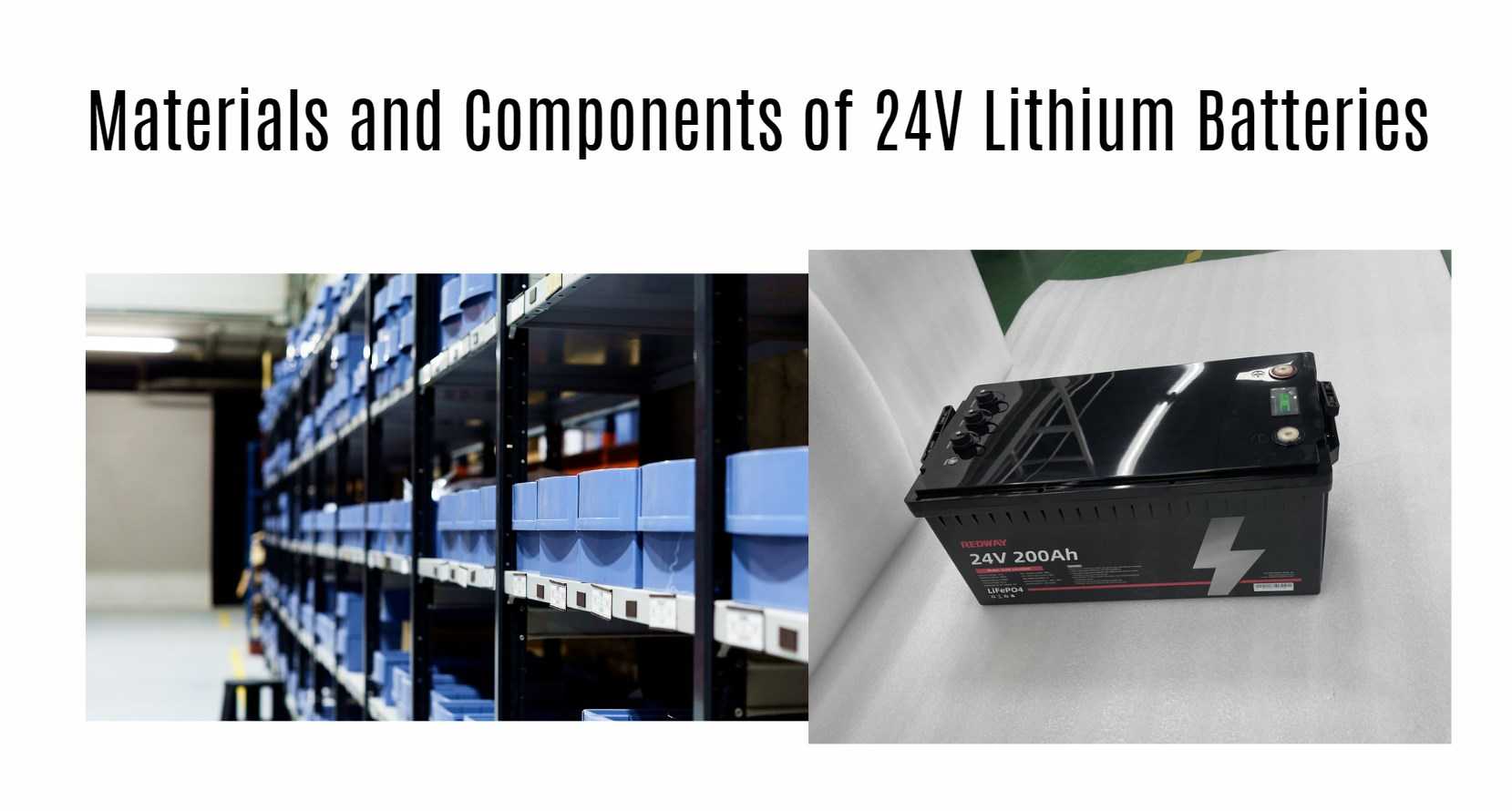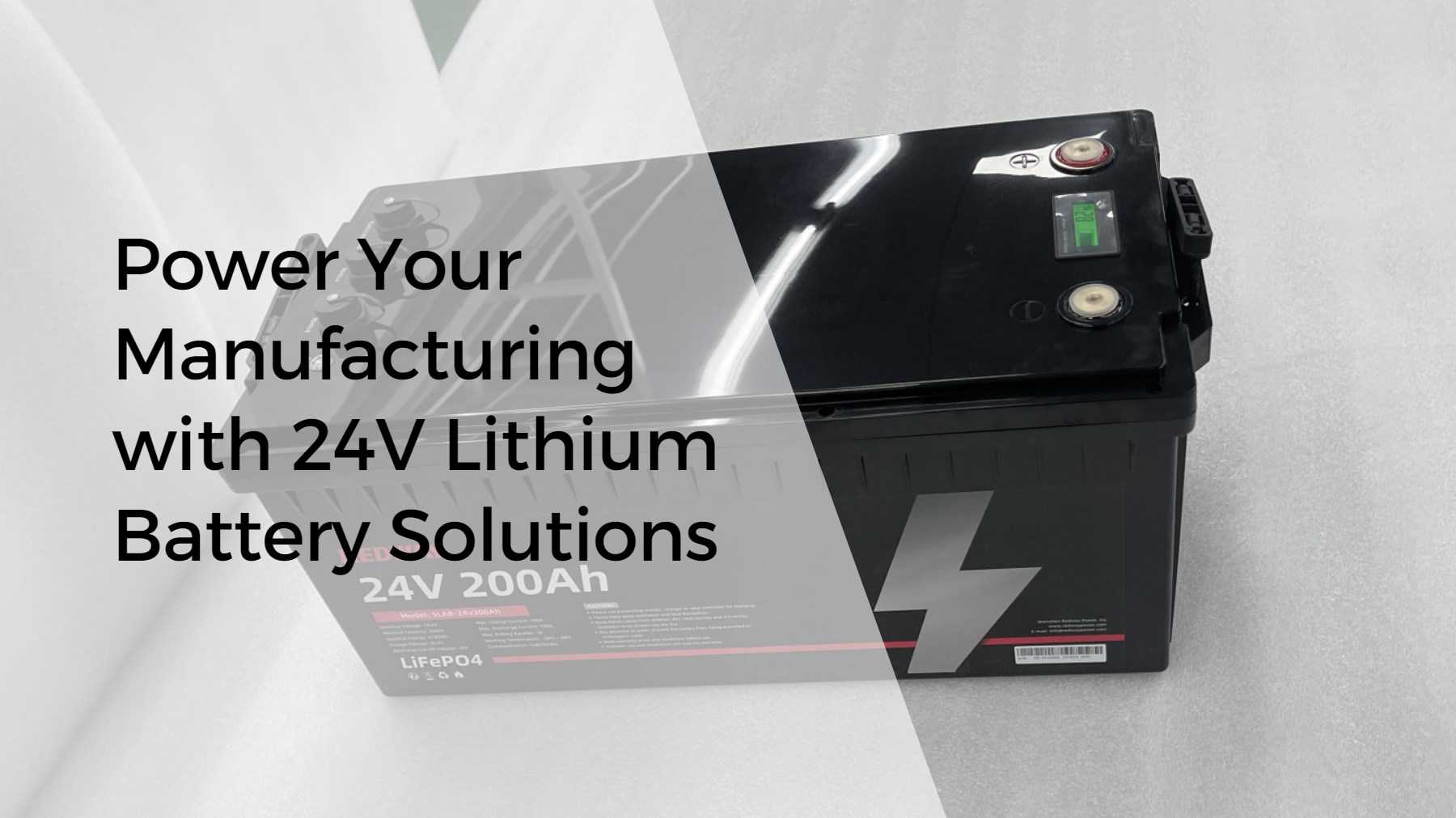The energy storage landscape is evolving rapidly, with the 24V lithium battery emerging as a pivotal component in numerous applications, from consumer electronics to electric vehicles. This article delves into the intricacies of 24V lithium batteries, highlighting their types, advantages, applications, design considerations, and the future trajectory of this technology.
Lithium-Ion Batteries and Their Importance
Lithium-ion batteries are crucial for modern energy storage solutions, and among them, the 24V lithium battery stands out due to its versatility and widespread use. Operating at a nominal voltage of 24 volts, these batteries are designed to meet the electrical requirements of a vast array of devices, ensuring a balance between power and capacity.
The fundamental principle of a 24V lithium battery lies in its ability to store and release energy through the movement of lithium ions between the positive and negative electrodes. This efficient mechanism provides a rechargeable power source that is reliable and long-lasting, making it essential for manufacturers to understand the complexities involved in its production and application.
Types of 24V Lithium Batteries
The market offers various 24V lithium-ion batteries, each with distinct chemistries that cater to different application needs. Key types include:
- LiFePO4 (Lithium Iron Phosphate): Known for high safety and long cycle life.
- LiMn2O4 (Lithium Manganese Oxide): Balances capacity and cost-effectiveness.
- LiCoO2 (Lithium Cobalt Oxide): Offers high energy density.
- LiNiCoMnO2 (Lithium Nickel Cobalt Manganese Oxide): Combines high energy density and safety.
Each type has specific benefits and drawbacks, influencing their suitability for different applications, from automotive to renewable energy sectors. Choosing the right type involves assessing energy density, cycle life, and safety requirements.
Advantages of 24V Lithium Batteries
24V lithium batteries offer several advantages, making them a preferred choice for many applications:
- High Energy Density: They pack substantial energy into a compact form, ideal for space-constrained and weight-sensitive applications.
- Excellent Charge/Discharge Efficiency: Minimizes power loss, extending battery life and reducing operational costs.
- Low Self-Discharge Rate: Retains stored energy for extended periods, crucial for backup power and intermittent usage devices.
- Long Cycle Life: Ensures durability and longevity, providing cost savings over time.
These advantages are essential for industries relying on efficient and reliable power sources, such as renewable energy and electric mobility.
Applications of 24V Lithium Batteries
The versatility of 24V lithium batteries allows for a broad range of applications:
- Electric Mobility: Powers electric scooters, bicycles, and small electric vehicles, offering an eco-friendly transportation solution.
- Renewable Energy Storage: Integral to solar and wind energy systems, storing excess energy for later use to stabilize power supply.
- Industrial Applications: Powers material handling equipment like forklifts and AGVs, enhancing productivity with quick charging and long operational hours.
- Marine Industry: Suitable for electric boats and yachts due to their lightweight and high-capacity features.
Design Considerations for 24V Lithium Batteries
Designing an efficient 24V lithium battery system involves several key considerations:
- Voltage Compatibility: Must match the specific requirements of the intended application.
- Capacity: Measured in ampere-hours (Ah), it determines the energy storage capability and operational duration.
- Thermal Management: Essential to prevent overheating and ensure safe operation.
- Safety Features: Includes overcharge protection, thermal cutoffs, and robust casing to enhance durability and safety.
- Environmental Conditions: Must withstand varying temperatures, humidity, and mechanical stresses.
Proper design ensures optimal performance and safety across different usage scenarios.
Manufacturing Process of 24V Lithium Batteries
The manufacturing of 24V lithium batteries involves meticulous steps to ensure high quality and performance:
- Cell Assembly: High-quality cells are selected and grouped to achieve the desired voltage and capacity.
- Quality Control: Rigorous testing of performance and safety parameters at each stage to identify and rectify potential issues.
- Battery Assembly: Cells are encased with protective materials, integrating thermal management and safety systems.
- Compliance with Standards: Adherence to international standards like ISO 9001 and ISO 14001 ensures quality, safety, and environmental sustainability.
This stringent process guarantees reliable and efficient batteries.
Materials and Components of 24V Lithium Batteries
Key materials and components in a 24V lithium battery include:
- Cathodes: Made of compounds like LiCoO2, LiFePO4, influencing energy density and safety.
- Anodes: Typically consist of graphite or silicon, affecting performance and longevity.
- Electrolytes: Facilitate the movement of lithium ions between electrodes.
The choice of materials impacts the battery’s efficiency, cycle life, and safety, with ongoing advancements aimed at improving these aspects.

Battery Assembly and Testing
The assembly and testing phases are crucial for ensuring the quality and performance of 24V batteries:
- Assembly: Involves precise alignment and connection of cells within protective casings, incorporating cooling and safety features.
- Testing: Comprehensive evaluation of parameters like capacity, voltage, and safety mechanisms to ensure reliability.
Quality control throughout these stages is vital for delivering high-performance batteries.
Battery Management Systems (BMS) for 24V Lithium Batteries
BMS are integral to the safe operation of 24V lithium batteries, offering features such as:
- Cell Balancing: Ensures even charge distribution to prolong battery life.
- Fault Detection and Isolation: Identifies and addresses issues promptly.
- Communication with External Devices: Optimizes the charging/discharging process through interaction with chargers and control systems.
Incorporating BMS is essential for maintaining battery health and compliance with safety standards.
Environmental Considerations in Manufacturing
Environmental considerations in 24V lithium battery production focus on:
- Sustainable Material Sourcing: Ethically sourced materials and recycling programs reduce environmental impact.
- Recycling and Disposal: Reuse of valuable materials like lithium and cobalt minimizes waste and preserves resources.
- Eco-Friendly Manufacturing: Adoption of processes with lower carbon footprints and reduced harmful chemicals.
Efforts in sustainability are crucial for the long-term viability of lithium battery technology.
Future of 24V Lithium Batteries
The future of 24V lithium batteries is shaped by technological advancements and sustainability efforts:
- Technological Innovations: Developments like solid-state batteries promise higher energy densities and improved safety.
- Raw Material Challenges: Addressing the availability and ethical sourcing of lithium and cobalt is crucial.
- Sustainability Focus: Cleaner energy solutions and increased use of recycled materials will drive the industry forward.
The industry must adapt to these changes, ensuring continued progress in battery technology and sustainability.
Conclusion
The 24V lithium battery is a transformative technology in the energy storage sector, offering unmatched advantages across various applications. With ongoing advancements and a strong focus on sustainability, these batteries will continue to play a critical role in shaping the future of energy solutions.
FAQs
What are the key types of 24V lithium-ion batteries available in the market?
The key types of 24V lithium-ion batteries include LiFePO4 (Lithium Iron Phosphate) known for high safety and long cycle life, LiMn2O4 (Lithium Manganese Oxide) that balances capacity and cost-effectiveness, LiCoO2 (Lithium Cobalt Oxide) offering high energy density, and LiNiCoMnO2 (Lithium Nickel Cobalt Manganese Oxide) which combines high energy density and safety.
What are the advantages of using 24V lithium batteries for various applications?
The advantages of 24V lithium batteries include high energy density, excellent charge/discharge efficiency, low self-discharge rate, and a long cycle life, making them suitable for applications requiring efficient and reliable power sources.
How does the manufacturing process of 24V lithium batteries ensure quality and performance?
The manufacturing process of 24V lithium batteries involves cell assembly, quality control at each stage, battery assembly with protective materials, and compliance with international standards like ISO 9001 and ISO 14001, which ensures high quality, safety, and environmental sustainability.
What are the environmental considerations in the production of 24V lithium batteries?
Environmental considerations in the production of 24V lithium batteries include sustainable material sourcing, recycling and disposal of valuable materials like lithium and cobalt, and eco-friendly manufacturing processes with lower carbon footprints and reduced use of harmful chemicals.




